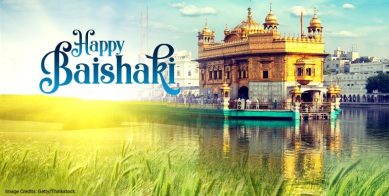When is Baisakhi 2024: All about date, time, history and significance
Baisakhi 2024 Date: Baisakhi, also known as Vaisakhi, embodies the spirit of joy, reflection, and renewal, marking the beginning of a new year and commemorating significant historical events. Here's everything one needs to know.

Baisakhi 2024 Date, History Significance: Baisakhi, also known as Vaisakhi, is a vibrant and significant festival, especially in North India, celebrated with great joy and enthusiasm amongst people across India. It marks the commencement of the harvest season and the beginning of the solar New Year in parts of North India.
Initially observed on the initial day of the Vaisakh month (April-May) as per the Sikh calendar, aligning with April 13 or 14 in the Gregorian calendar. Marking the Solar New Year, this year, in 2024, Baisakhi falls on April 13 (Saturday), with the auspicious festivities commencing at 9:15 PM just before Mesha Sankranti, as per the Drik Panchang.
The celebrations of Baisakhi are vibrant and colourful, characterised by traditional music, dance, and communal feasts, hence, bringing people together to celebrate the harvest and the rich cultural heritage. Here is all you need to know about the festival.
Baisakhi 2024: History and Significance
Baisakhi is a festival with deep historical and cultural significance, primarily celebrated in the Punjab region of India. For Sikhs, it holds immense importance as it marks the day in 1699 when Guru Gobind Singh, the tenth Sikh Guru, founded the Khalsa Panth, establishing a community of baptised Sikhs with a distinct identity and code of conduct, signifying to uphold righteousness, equality, and fight oppression.
Additionally, Baisakhi is a harvest festival and the start of the new agricultural year in Punjab, where farmers give thanks for the bountiful harvest and pray for future prosperity. For Hindus, Baisakhi is associated with the Vaisakha festival, celebrated as the solar new year. It is a time for bathing in sacred rivers, worship, and community fairs, as mythologically, it is believed that Goddess Ganga descended to Earth on this day, leading many to take holy dips in rivers like the Ganges, Jhelum, and Kaveri.
Baisakhi is celebrated with great enthusiasm, especially in Punjab and Haryana. People participate in traditional folk dances like Bhangra and Gidda, wear vibrant clothes, and enjoy festive foods. In essence, it’s a festival that embodies the spirit of joy, reflection, and renewal, marking the beginning of a new year and commemorating significant historical events.